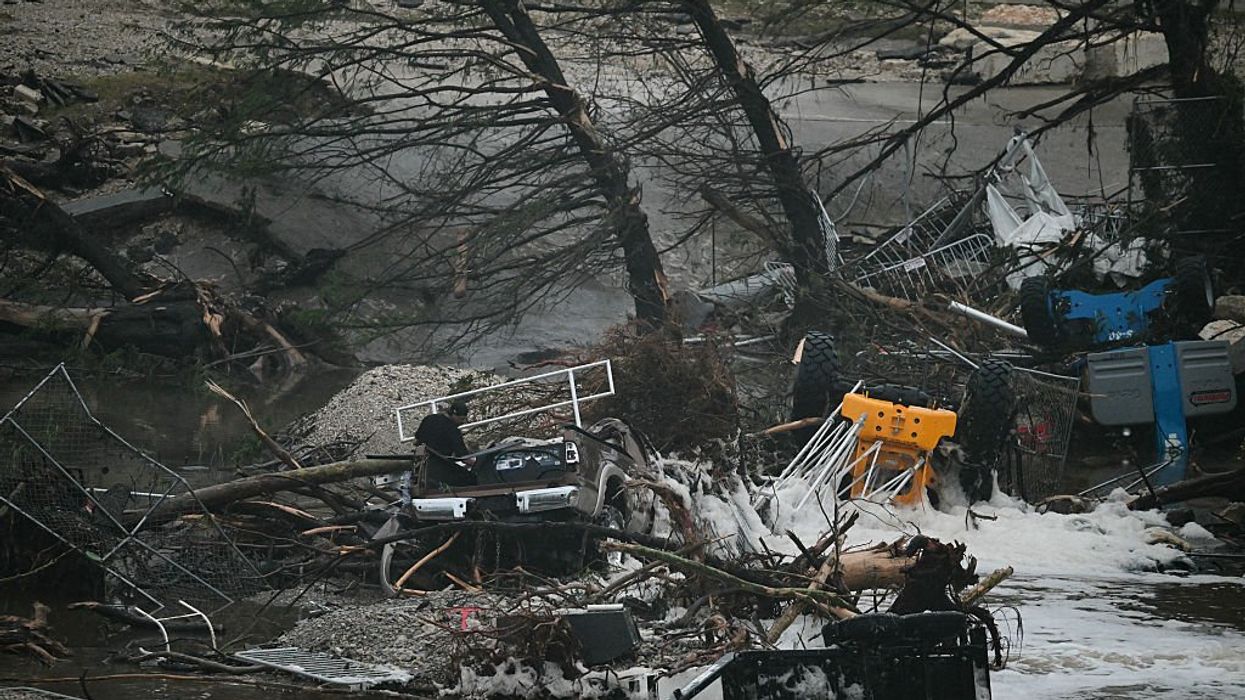© 2025 Blaze Media LLC. All rights reserved.
"A lot of people call me ugly, and I think I am ugly. I think I'm ugly, and fat,"

(AP) — The young girl shows off her big, comfy koala hat and forms playful hearts with her fingers as she drops the question on YouTube: "Am I pretty or ugly?"
"A lot of people call me ugly, and I think I am ugly. I think I'm ugly, and fat," she confesses in a tiny voice as she invites the world to decide.
And the world did.
The video, posted Dec. 17, 2010, has more than 4 million views and more than 107,000 anonymous, often hateful responses in a troubling phenomenon that has girls as young as 10 — and some boys — asking the same question on YouTube with similar results.
Some experts in child psychology and online safety wonder whether the videos, with anywhere from 300 to 1,000 posted, represent a new wave of distress rather than simple self-questioning or pleas for affirmation or attention.
How could the creators not anticipate the nasty responses, even the tender tweens uploading videos in violation of YouTube's 13-and-over age policy? Their directness, playful but steadfast, grips even those accustomed to life's open Internet channel, where revolutions and executions play out alongside the ramblings of anybody with digital access.

Commenters on YouTube curse and declare the young video creators "attention whores," ask for sex and to see them naked. They wonder where their parents are and call them "fugly" and worse.
"Y do you live, and kids in africa die?" one responder tells the girl in the koala hat who uses the name Kendal and lists her age as 15 in her YouTube profile, though her demeanor suggests she was far younger at the time.
Another commenter posts: "You need a hug.. around your neck.. with a rope.."
Some offer support and beg Kendal and the other young faces to take down their "Am I Pretty?" and "Am I Ugly?" videos and feel good about themselves instead.
Much has been made of cyberbullying and pedophiles who cruise the Internet, and of low self-esteem among pre-adolescents and adolescents, especially girls, as their brains continue to develop.
There have been similar "hot or not" memes in the past, but as more young people live their lives online, they're clearly more aware of the potential for negative consequences.
"Negative feedback that is personal is rarely easy to hear at any age, but to tweens and teens who value as well as incorporate feedback into their own sense of worth, it can be devastating," said Elizabeth Dowdell, a nursing professor at Villanova University in suburban Philadelphia. She has researched child Internet safety and risk behavior in adolescents in partnership with the Justice Department.
In another video posted by Kendal, she offers to "do two dares" on camera, inviting her open-channel audience to come up with some as she holds a little white stuffed monkey.
In heavy eye makeup and neon orange nail polish, a girl who calls herself Faye not only asks the pretty/ugly question but tells in other videos of being bullied at school, suffering migraines that have sent her to the hospital and coping with the divorce of her parents.
"My friends tell me that I'm pretty," she says. "It doesn't seem like I'm pretty, though, because, I don't know, it just doesn't, because people at school, they're like, 'Faye you're not pretty at all.'"
She narrates a slideshow of still close-ups of herself to make the judging easier (she's had more than 112,000 views) and joins other girls who have posted videos on another theme, "My Perfect Imperfection," that have them noting what they hate and love about the way they look.
"I just don't like my body at all," says Faye as she pulls up her sweat shirt to bare her midriff.
Faye's profile lists her age as 13. Tracked down in suburban Denver, her mom, Naomi Gibson, told ABC's "Good Morning America" she knew nothing of the video until reporters started to call. "I was floored," she said.
Faye told ABC she has been called names and gossiped about behind her back.
"Deep down inside, all girls know that other people's opinions don't matter," she said. "But we still go to other people for help because we don't believe what people say."
A third girl who uploaded one of the pretty/ugly videos in September attempts a few model poses in childlike pedal pushers and a long, multicolored T-shirt after posing the question. She takes down her ponytail and brushes her hair as she stares into the camera.
"If you guys are wondering, I am 11," she offers. Her video has been viewed more than 6,000 times.
"COMMUNICATE WITH YOUR PARENTS AND CLEAN YOUR ROOM!!! BUT TAKE THIS TERRIBLE VIDEO DOWN YOU ARE A CHILD AND SHOULD NOT HAVE THIS KIND OF ACCESS TO THE INTERNET," one commenter screams.
None of the three girls responded to private messages on YouTube seeking comment from The Associated Press. Gibson told ABC she was considering revoking her daughter's YouTube privileges, but stopped short of demanding that Faye take down the video.
"Hopefully it will open up the eyes of the parents," Gibson said. "The kids aren't letting their parents know what's wrong, just like Faye didn't let me know."
YouTube would not comment directly about the "Am I Pretty?" controversy, but it issued a statement advising parents to visit the site's safety center for tips on how to protect their kids online.
The site's posting policy prohibits videos and comments "containing harassment, threats or hate speech" and encourages users to flag such material for review, the statement said.
Emilie Zaslow, a media studies professor at Pace University in New York, said today's online world for young people is only just beginning to be understood by researchers.
When the Internet is your diary and your audience is global, she said, "The public posting of questions such as "Am I ugly?" which might previously have been personal makes sense within this shift in culture."
Add to that the unattainable pressures of the beauty industry, a dose of reality TV, where ordinary people can be famous, and superstars who are discovered via viral video on YouTube, she said.
"These videos could be read as a new form of self-mutilation in line with cutting and eating disorders," Zaslow said.
That potential is real, added Nadine Kaslow, a family psychologist and professor of behavioral sciences at Emory University in Atlanta.
"There's this constant messaging about looks and beauty," she said. "Their world is taking it to a new level. It can be humiliating, there may be a lot of shame, and you start to become public objects instead of being your own person."
Want to leave a tip?
We answer to you. Help keep our content free of advertisers and big tech censorship by leaving a tip today.
Want to join the conversation?
Already a subscriber?
more stories
Sign up for the Blaze newsletter
By signing up, you agree to our Privacy Policy and Terms of Use, and agree to receive content that may sometimes include advertisements. You may opt out at any time.
Related Content
© 2025 Blaze Media LLC. All rights reserved.
Get the stories that matter most delivered directly to your inbox.
By signing up, you agree to our Privacy Policy and Terms of Use, and agree to receive content that may sometimes include advertisements. You may opt out at any time.





